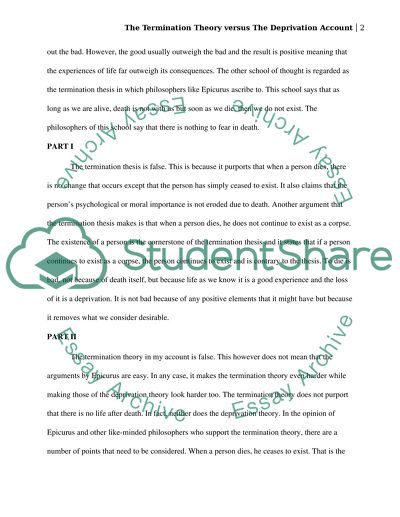Cite this document
(“The termination theory versus the deprivation account Essay”, n.d.)
Retrieved from https://studentshare.org/philosophy/1394678-philosophy
Retrieved from https://studentshare.org/philosophy/1394678-philosophy
(The Termination Theory Versus the Deprivation Account Essay)
https://studentshare.org/philosophy/1394678-philosophy.
https://studentshare.org/philosophy/1394678-philosophy.
“The Termination Theory Versus the Deprivation Account Essay”, n.d. https://studentshare.org/philosophy/1394678-philosophy.


